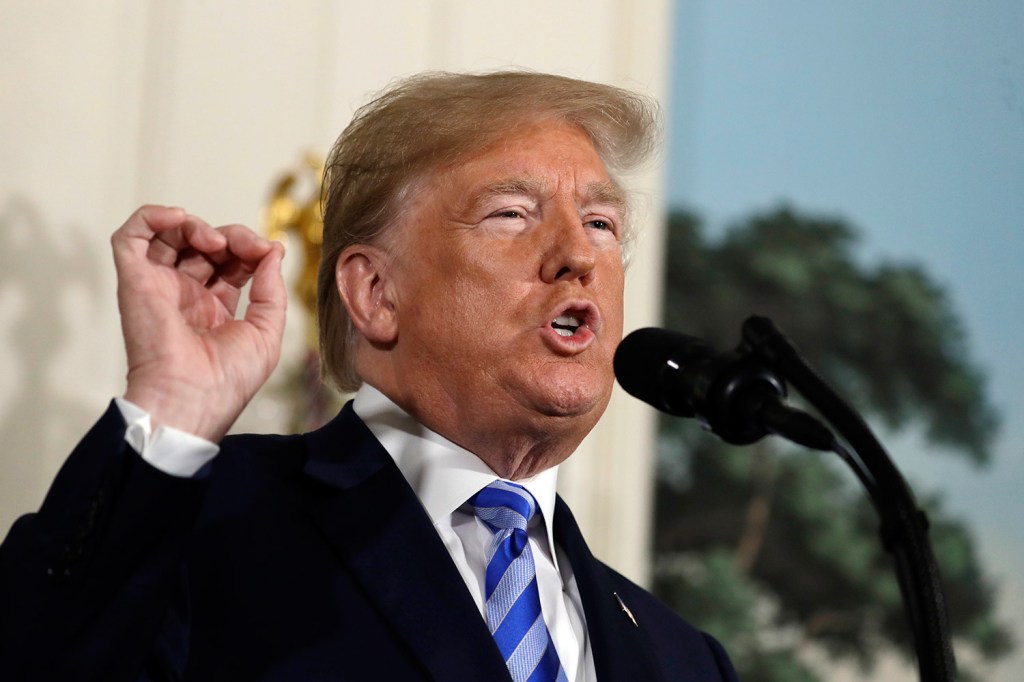President Donald Trump on Tuesday finally did what wiser heads in his administration have been trying to keep him from doing almost from the time he was sworn in: He announced that he would withdraw the United States from the Iran nuclear agreement. In doing so, he rejected the pleas of America’s closest allies and more than 100 current and former senior diplomats. He even turned a blind eye to his own Defense secretary’s conclusion that the agreement has allowed robust monitoring of Iran’s activities.
But as alarming as the action itself was the deceitful and demagogic speech in which he attempted to justify it. It was virtually indistinguishable from the sort of rant Trump delivered on the campaign trail — utterly uninformed by the sort of appreciation for complexity that experience confers on most occupants of the Oval Office. And much as we would like to think the president was motivated by a belief, however wrongheaded, that tearing up this agreement would lead to a better one, it’s hard to escape the suspicion that he was more influenced by a compulsion to besmirch the legacy of his predecessor.
Trump spoke four days before he must decide whether to again waive the economic sanctions against Iran that the U.S. lifted to comply with the agreement, which Iran negotiated in 2015 with the five permanent members of the U.N. Security Council, Germany and the European Union. In his speech, Trump said not only that he won’t waive the sanctions but that the U.S. will “withdraw” from the agreement, which he called a “disastrous deal” that has caused “great embarrassment to me as a citizen.”
But Trump’s attack on the agreement was characteristically misleading and short on detail. For example, he described the limits on Iran’s nuclear activities as “very weak,” a laughable characterization in light of the elaborate requirements of the agreement.
Trump is rightly concerned that several provisions of the agreement expire or sunset after 10 or 15 years, a condition he called “totally unacceptable.” Ideally the agreement would have made those provisions permanent. He also was right to complain in his speech about Iran’s development of ballistic missiles and its support for militant groups in the region. But those were the compromises required to strike the deal in the first place. There is nothing about abrogating or repudiating the agreement that puts the U.S. in a stronger position to command concessions.
The full consequences of Trump’s decision cannot be known, but they almost certainly will include a further erosion of America’s credibility with its allies and others, and tacit encouragement for Iran to revive its nuclear program. That will be bad for the country and for the world.
Editorial by the Los Angeles Times
Visit the Los Angeles Times at www.latimes.com
Distributed by Tribune Content Agency, LLC.
Copy the Story LinkSend questions/comments to the editors.



Success. Please wait for the page to reload. If the page does not reload within 5 seconds, please refresh the page.
Enter your email and password to access comments.
Hi, to comment on stories you must . This profile is in addition to your subscription and website login.
Already have a commenting profile? .
Invalid username/password.
Please check your email to confirm and complete your registration.
Only subscribers are eligible to post comments. Please subscribe or login first for digital access. Here’s why.
Use the form below to reset your password. When you've submitted your account email, we will send an email with a reset code.